What Batman can Teach Us About Depression
Possibly the most well known fictional character besides Superman, Bruce Wayne, a.k.a The Batman, will hold a spot in history forever. With his hell-bent desire to rid Gotham City of filth and corruption, Batman is the epitome of rough justice. Resembling the size and magnitude of New York, Gotham is home to bankers, drug dealers, and everything in between.
Since his debut in 1939, billionaire philanthropist (and occasional playboy) Bruce Wayne has struck fear in the hearts of villains such as The Scarecrow, The Penguin, and everyone’s’ favorite, The Joker. Batman does much more than just punch these criminals into Arkham Asylum though, as he provides hope for those in need of something to believe in. When the bat-symbol shines in the night, fearful citizens can be reassured that Batman is coming. However, that light in the sky also serves as a warning. A warning that evil is afoot once again.

The Dark Knight can show us that righteousness can indeed rise out of the ashes of sin. He also teaches normal people like us, who don’t wear capes to work, what it feels like to battle depression.
The Sad Man Behind the Mask
Everyone knows the story of how Bruce Wayne became the Batman. Like most superheroes, Bruce went through something so traumatic that his life would never be the same again: witnessing the death of his parents. After this, a very lonely boy made a promise. In 1939, the comic Batman Wars against the Dirigible of Doom showed a grief stricken Bruce kneel over his bed saying “I swear by the spirits of my parents to avenge their deaths by spending the rest of my life warring on all criminals.” That was nearly eighty years ago, but the story remains mostly unchanged. The young boy began his journey that would turn him into Gotham’s Dark Knight. It might be easy to pass off Bruce’s method of coping as heroic and extraordinary, but his response may be slightly more normal than one would think.
There are numerous coping strategies that victims of psychological disorders, such as depression, use in order to get through each day. A common coping strategy is denial; in which someone refuses to acknowledge the harmful things affecting them. Bruce Wayne, however, is not the type of person to deny anything.
Instead, he appears to use the strategy known as sublimation. Sublimation is the concept of acting out unacceptable impulses by converting these negative thoughts into acceptable behaviors (Cherry 2016). In Batman’s case, he desperately wanted to avenge his parent’s deaths, but literally doing so would be illegal. Instead, he trained his body and mind to peak perfection in order to fight crime. I know what your thinking. How is this any more acceptable? He is still breaking the law by becoming a vigilante! But to Bruce, this behavior is not only acceptable, it’s justice. That depressed and angry boy was able to use his raw emotions to transform him into a modern day Gothic Hercules.
Yes, one could say this drove him to become obsessive towards his mission, but one could also argue that sublimating his grief into crime fighting helped him get through his depression and he ultimately came out physically and mentally stronger.
When someone is traumatically hurt, it’s probably a good idea not to become a vigilante running around saying in a gravelly voice, “I am the night.” Sublimation, however, can be beneficial in a more practical way. An example of this is boxing. Someone with built up aggression can take this anger out while learning to spar, and thus using it as a release. Another example could be writing poetry to vent out some negative or depressive thoughts, and all while putting these thoughts on paper and making them tangible. Whether its boxing or poetry, sublimation can be used to turn unacceptable impulses into acceptable behaviors. Although Batman ended up becoming a crime fighting war machine, he also used this coping method to rise above his hopeless situation.
A Death in the Family (and beyond).
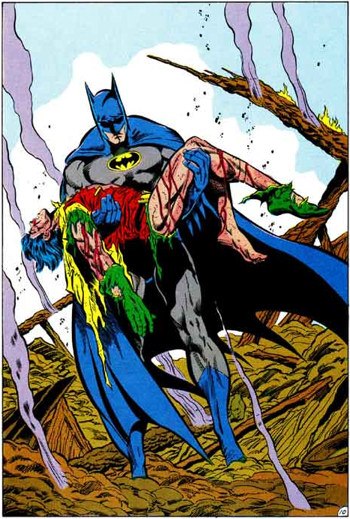
Batman was able to cope with the death of his parents, but nothing prepared him to deal with something many would consider worse: the death of a child. The year was 1988 and Batman: A Death in the Family took a dark twist. In a shocking and groundbreaking turn of events, Jason Todd, the second Robin Boy-Wonder, was brutally murdered by The Joker. Like I said, this was the second Robin, and Jason was much different than his predecessor, Dick Grayson. Whereas Dick blurted out cheesy one liners like “Holy Armadillo, Batman!” or my favorite “Holy hole in a donut, Batman!” Jason was much more serious.
His father a low end criminal, and his mother a victim of drug addiction and eventual overdose, Jason was on the streets becoming a petty thief when Batman found him. Although Jason, like Dick, wasn’t related in any way to Bruce, he raised him as his own son (I’m assuming Alfred dealt with the complicated adoption paperwork). Batman now had a new Robin, and things were back to normal. Well, as near to normal as comic books would allow.
In a painful yet captivating story, Jason found out that his biological mother was actually alive, and went in search of her. However, Batman and Robin stumbled upon yet another of the Clown Prince of Crime’s schemes; the Joker was back on the scene, and this moment would become a cornerstone for comic book tragedies. After his own mother betrayed young Jason to the Joker, and while Batman was off stopping the mad clown’s plot, the Joker had a vulnerable and defenseless bird to play with. But the Joker decided this game needed a plot twist.
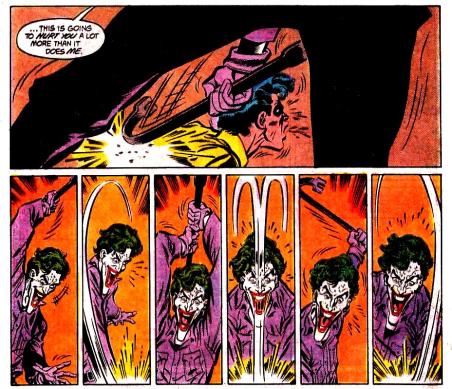
The Light in the Dark
So what can we learn?
Batman embodies what it means to be committed and resilient in the face of adversity. However, the sun goes down on every horizon, and death is one bad guy Batman can’t defeat. Although Batman was able to cope with his parent’s death by bettering himself and becoming the hero Gotham deserves, even he couldn’t handle his grief alone. What Batman shows us, is that anyone can suffer depression. Bruce Wayne, who has more money than most people could even dream of, isn’t impervious to despair. Batman, who rarely shows emotion and is depended on for his courage, couldn’t handle losing a son.
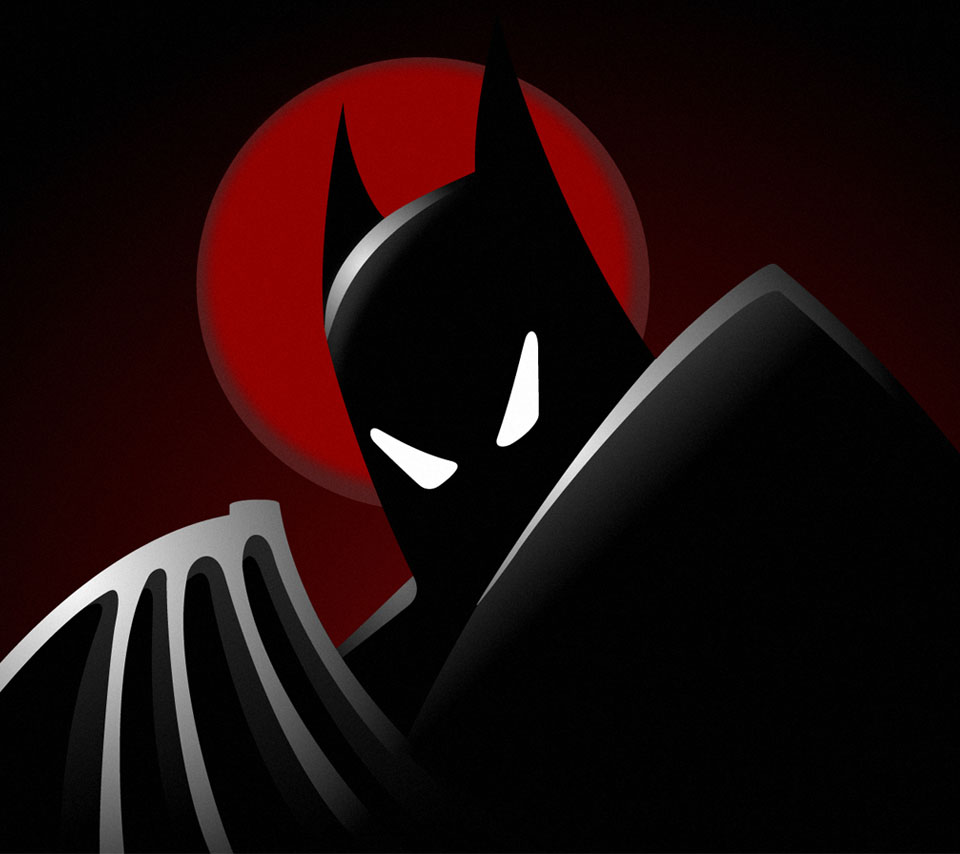
Batman shows us that yes, we can find methods to cope with our grief, but ultimately we will meet a roadblock that derails us faster than we can recover. These coping strategies may end up dooming us as we struggle to find normalcy in a chaotic world. Depression tends to make us force those closest to us farther away. It darkens our days and stretches out our nights.
Batman shows us, however, that family can help. Lifting a boulder becomes easier when you aren’t the only one lifting it. Although it may seem so far away, the dawn will always come. “But if you are willing to try,” Batman tells his small family, “we’ll try.” Under the suit, under the mask, and under the symbol of the bat, lies a man. And any man willing to try can become a super hero.
What do you think? Leave a comment.

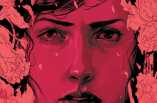

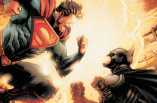
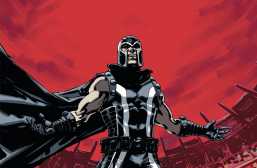
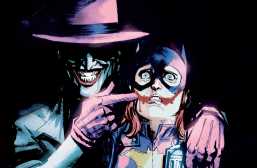

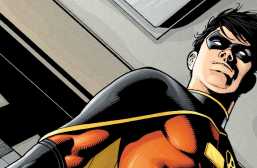


Whenever I’m feeling down or depressed(which is pretty often) I think about Batman and how determined he is, even in spite of everything he has to deal with.
For being so grim and dark, Batman’s hella inspirational.
He sure is inspirational! Another super hero that inspires me is Green Lantern. Maybe sometime when you feel down you should pick up a GL comic book!
He has good reasons for being the way he is. I can totally understand why he is off his rocker, but despite that he is schizo and depressed, he still retains a strong sense of good and justice. Plus it is the depression and anger from all the horrible events he has gone through that continues to drive him.
Great work here! The tragic, family/grief aspect of Batman is pretty compelling. Bruce tries to give others the family he lost, and it causes him a lot of strife. Still, he keeps trying, which, as you said, makes him heroic.
Sorry to point it out, but Death in the Family is the arc in which Jason was killed. The arc that introduced Tim was A Lonely Place of Dying.
You are right Ellen. The comic in which I read these combined these two stories and it wasn’t until very recently that I realized this. Thanks for keeping me honest!
It is a paradox, this Batman, doing the wrong things for the right reason. I wrote a poem about it. Here it is.
finally there is …
the planet’s most famous case of post-traumatic stress
a young boy watches
as his parents are gunned down in the streets of Gotham
grows into a serious adult seldom smiling
the hull of a ship weighted with anger
fearing intimacy
focused on the destiny ahead
a mythic mission to protect the innocent
stopping perpetrators of horrific crimes
a Gothic fairy tale where villains
conspire in dimly lit underground dens
spewing their greed on a city immersed in
collateral nightmares
deep in the collective unconscious
the hero archetype gets a facelift
a new double identity
multi-millionaire
mega business
luxurious personal life
an alter ego dark knight
soars through the night sky
rids us of criminals
without stopping crime
ego inflated with id
needs costumes and masks
accumulates knowledge
pursues brilliance in the execution
of technological feats
and the psychological feat
of trauma survival
develops powers beyond
imagination of friends, enemies
the loneliness of
a sharp mind perched on a
pedestal of privilege
and perception
obsessed by omni-vision
solitary judgement
ignores the structures of law
seeks revenge in the guise of justice
year by year deepening
the disempowerment of elected officials
a living law un-tethered by judge
jury, or due process
a falconer unmasked
who becomes
the falcon
Awesome poem!
Thanks so much.
A Batman poem, who would have thought?? Thanks so much for this.
Batman is less about overcoming depression and more about the perils of fixation.
In “The Man Who Has Everything”, what was Batman’s dream-world? When some psychedelic fauna latched itself to Bruce Wayne’s chest and gave him a vision of his perfect world, what was it?
It wasn’t a world without crime. It wasn’t Gotham City with a police force and void of costumed freaks.
It was his father beating his would-be shooter to death. THAT’S what Batman is.
He may be written as the world’s greatest detective, but the core motivation of any Batman story is that he’s trying to avenge the wrong he’s been subjected to.
In terms of associating him as an example of good mental health, I think one can do a lot better than someone who will never accept his personal trauma.
The original Batman and Robin had a lot less angst. It was beyond campy. I grew on the original TV adaptation. But I guess this Batman has allowed for greater character development and more of an origins story.
One of the reasons I like batman is that he is one of the only positive mentally ill role models I have.
I recommend Batman to those I talk to about having anxiety/depression. Batman does not quit. And it is so inspirational. The character is a great ideal to strive towards. Strong, competent and a very fun to read.
Depression is a monster but I think there’s few people that can understand it as well as Batman. Yet he perseveres, he strives on because he’s determined. I wish I had half the willpower and dedication he does but that’s how he’ll constantly inspire me to do better. He’s my hero and always has been.
Yeah he’s a badass and master of many martial arts at the peak of physical perfection. An excellent escape artist with a genius level IQ and masterful detective skills. Though ultimately, he’s a broken man that shares the same pain and emotion we do, but he won’t stop his crusade purely for the good of others. That’s a good person, it’s what men should aspire to be like.
Batman is pretty great. He takes his own sorrow and tries to turn it into doing something good. (In his own brutal way)
The one thing, out of many things, the Batman films lack, is character study.
I have loved Batman ever since I was a little child, and the more I grow up, I feel I got to know him as an actual person.
Batman got me through a lot of hard times.
Batman is my favorite superhero for many of those reasons. As a melancholic guy, I feel like a can relate perfectly to him in many situations.
Technically, not a superhero, just a hero.
He’s not really depressed. He’s just paranoid, and slightly psychotic, but you’d have to be. Doesn’t mean he’s not the greatest character ever though.
Interesting character study. We should look at our past as a lead up to our present, not to our future. The human condition will always look at what it has yet to accomplish, it will never appreciate what it has accomplished so far.
Depression has become more and more prevalent in twenty year olds. What is the main cause for this?
Hey Cotton, as a psychology major, your question is something I’ve come across before. Why is it that young adults, mainly 20 somethings, seem to be suffering from this disorder? Alas, this is too big of a question to be answered in just a few sentences. But to summarize my ideas on the topic, I believe that through social media, electronics, and a growing need to be accepted, young adults are constantly being exposed to the harsh opinions, realities, and ideas that come when a world is shrunk down to fit inside a cellular phone. Not only is our personal life stressful, but now we take on the stress of others and the world around us. Studies have shown that we live in an “age of anxiety” and it seems to be linked with the current “age of technology” as well. Hope this helps.
Beautifully written, and I can completely relate since I too lost a son.
Batman is dark, but there is also the glimmer of light.
Well done.
I have anxiety and depression and I have fallen back on the comics of Batman.
Batman’s rule. His stories. The power and self control that character possesses is truly magnificent. Everytime this guy gets down, he gets up. When Bane broke his back, he came back, saved the city, whooped Bane!
Wow, great point. Hadn’t thought of it that way before.
Batman is an inspiration, he helps me live better, just knowing that a man who chooses to fight crime his way, the right way, the only way, gives me a ton of hope.
I like your writing style and you provided enough of a summary of the Batman story lines to help those unfamiliar with it understand your article in its entirety.
I loved everything about this article, and your writing style is absolutely beautiful. I think it’s worth noting that Batman is also a beacon of hope. Whereas, like you mentioned, he does teach us to channel our anger into something productive and to put a face on the things that petrify us, he also has a strict ‘no killing rule’ that his son immensely struggles with in “Batman Reborn.” Although there’s irony in this vigilante believing in the justice system, he wants everyone to be saved. He wants everyone to have a chance to rise out of their circumstance. That, to me, is such a powerful statement of hope for the every day citizen just as much as it is for the super-villains of this world. Batman is relatable and timeless because he has been there. He understands getting lost in his grief, himself, other’s expectations, his failures, legacy, and his reputation. Lastly, Batman is okay with being alone. Few people can battle with pain in the ways he has completely alone and rise triumphant which is probably why asking his family for help during his depression after the death of Jason was so ridiculously hard and inconceivable at first.
Wonderfully executed article! You touch on a plethora of interesting and pertinent topics, seamlessly combining the movies, the comic books, and psychological disorders. Your writing has a unique tone in the way your words appear to flow out effortlessly. I look forward to reading more posts written by you.
Wow, really? It seems to me that this article provides no compelling evidence that Batman actually has depression. I’m afraid the author has confused grief (a temporary state) with depression (a chronic one).
What depressive symptoms does Batman demonstrate? Does he try or threaten to kill himself? Does he have difficulty remembering things or making decisions? Does he feel hopeless to the point of inactivity and demonstrate a lack of motivation? No. On the contrary, Batman is totally driven and committed to his mission of ridding Gotham of criminals.
Some people do spiral into depression when faced with trauma. Others are more resilient. Batman clearly falls into the latter category.
And the article totally crumbles at the end. The conclusion is just all over the place. For instance, where the author earlier asserted that following Todd’s death, “The light for Batman, and his saving grace, became his faith in those he loved,” he seems to reverse course in the conclusion and says Batman “couldn’t handle losing a son.” Which is it?
I also don’t understand how Batman demonstrates that “we can find methods to cope with our grief.” The author suggests that the only coping mechanism Batman employs is sublimation.
And finally, there’s this corkscrew at the end: “ultimately we will meet a roadblock that derails us faster than we can recover. These coping strategies may end up dooming us as we struggle to find normalcy in a chaotic world.” What in the world does that mean?
You obviously got more out of this article than I did. Can you explain any of this?
Batman would not be batman if he smiled. He’s the dark knight.
Good post. Depression is beatable, surround yourself with good people, do good things, and most of all talk about your problems, it’s important.
Batman is a fictional character. But that character has been written by very non fictional writers. Every writer puts a part of him or herself in the character, meaning who knows, maybe the writers have gone through the same stuff Batman goes through?
Quite interesting.
very nice movie
a very good analysis of the character
i love batman
Batman has always been inspirational character. No doubt that everybody has a batman or a superman in them, we get to realise it once we fall in real life problems and when we fight hard to get over them. We learn from our mistakes the tough time we face and that time we realise how much of a superhero we ourselves are.
Batman/Bruce Wayne is certainly one of the most interesting fictional characters to psychoanalyze. The professor in this video has an interesting take on it https://www.youtube.com/watch?v=eRlbV8tNILg.
When it comes to looking at the psychology of superheroes, the duality/split between identities is superfun to look at, especially when you realize not all heroes have the split in consciousness. Batman is a separate persona from Bruce Wayne, Superman is a separate persona from Clark Kent, but Wolverine and Logan/James Howlett is pretty much the same personality whether the mask/costume is on or not.
The Psychology of Superheroes sure does sound like an awesome college class!
Interesting article. I’ve never read the comics; I only watched the movies, and it never occurred to me to think that Batman might be depressed, except perhaps briefly when he loses a different loved one to the Joker.
So, from your article, I assume that you think Batman battled depression from a young age due to the death of his parents. Do the comics go into any of his coping strategies between the death of his parents and his start as Batman? Do you think depression was an ongoing force in his life, or do you think that it was periodic due to situations in his life?
Nicely done. I like this article. It provides a more human perspective on batman. I usually think of him as the more crass and unfeeling superhero.
Very interesting idea and skilled execution. This article contained so many different versions and sitings to Batman both comics and movies, and delves into a deeper side of a character from comics, when comics can often brush over such aspects of their characters. The thought that a superhero who dedicates their life to saving/helping others would have mental struggles like everyone else is original and intriguing.
It’s interesting to delve into Batman’s psyche, and almost as dangerous as jumping into the Joker’s. Batman and anti-heroes like him are a great representation of the darkness not always inhabiting those who are evil, that the light is not the only place where justice can be born.
Nice work, but I didn’t exactly see a connection between Bruce dealing with his depression and the death of Jason Todd?
Batman’s definitely a character who can be used to talk about depression, but while the impetus for him working as Batman might be depression, might the impetus for him having become Batman in the first place be PTSD? I’m surprised this isn’t discussed, as many Batman narratives involve nightmares or recurring dreams involving the murder of Bruce Wayne’s parents. I wonder how Batman might be used to talk not just about depression, but about how we learn to live with trauma.
What a beautiful article. I think you did Batman and his story justice. Nice work.
Your grammar is really bad.
This is what I can when I say I can relate to Batman.
The way he finally accepts he has so deep problems after years grieving Jason’s death is inspiring and although he has never beaten his depression and several other issues (like alcohol-related problems, anger management, obsessive-compulsive behaviour and PTSD) I admire how he seems to exteriorize more and more how much he cares about his family and how he always tries to overcome every obstacle that comes in his way.
I just hope he doesn’t end up giving Alfred a serious heart attack, God knows that man could be the only sane person out of all of them.
My late wife suffered from depression so I know how I helped her at times get through difficult times. Hopefully, this essay can help those who assist those suffering from depression.
Batman, more than any other superhero or actual character, is the only one who has taught me to do the right thing despite hard times.
Great article.
Great article! I have always read Batman comics for the purpose of using fiction to overcome adversity. He has been an inspiration to exemplify what man can achieve when faced with reality’s harshest and deepest despair. Rising up from the ashes of loss to be an impetus for justice, a force of sheer human volition, possessing the will to resist being shaped by your circumstances, to become something greater.
Depression is a serious issue. It is more pervasive than ever. Fictional stories like Batman help to illuminate the humanity in you, to fight against the temptation to fall into the abysmal void. I hope you keep writing on topics like this!
I don’t think the diagnosis of depression really fits Bruce Wayne, not in the clinical sense anyway. His pathology seems much more like persistent grief and chronic sadness. I’ve never much liked it when people tether the label of depression to grief and some of the long term complications that can, in some cases, go along with it.
I have to analyze two essays for school and I think that this was very easy to read and understand. Analyzing this was a breeze. Good job and keep on writing.
I have to analyze two essays for school and I think that this was very easy to read and understand. Analyzing this was a breeze. Good job and keep on writing. Thanks for helping me with school.
R.I.P Kevin Conroy. Really brought Batman to life in the animated series.